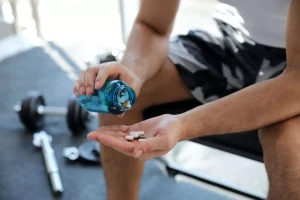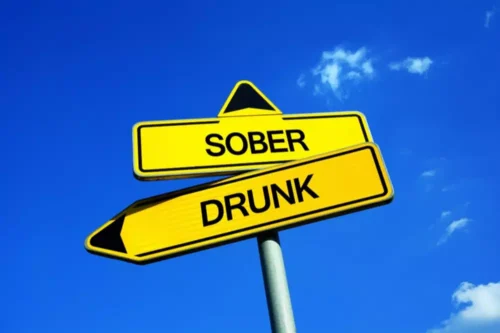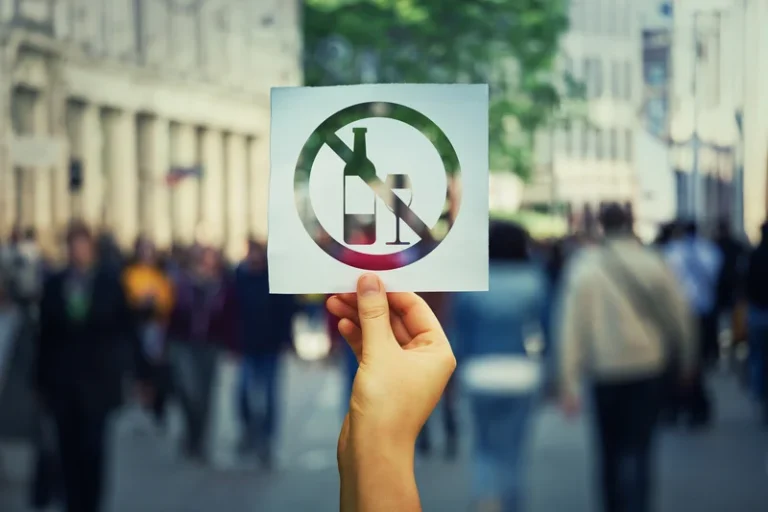
You can become conditioned to reach for a drink when your environment offers up certain cues. We all become conditioned to have certain responses to triggers throughout our lives. It’s normal for certain stimuli to cause a reaction in your mind and body without even being aware of it. You may also consider joining an online support group to help you feel less alone.
- However, medical complications can occur during the acute phase of withdrawal.
- Simply being here, reading tips on how to quit drinking, considering the possibilities of your future is a positive first step.
- Whether you’re sober curious, know for sure you’re ready to quit, or fall somewhere in between, Dr. Streem shares advice for how to stop drinking.
- This condition is serious and may lead to symptoms such as high blood pressure, tremors, and seizures.
- If you have a severe alcohol addiction, it might be best to seek professional addiction treatment.
CAR-T immunotherapy for prostate cancer?
Because substance use disorder is a complex disease, you likely have more than one trigger. When you feel a craving coming on, assess what’s around you and what you’re feeling. It is worth mentioning that nutritional status improvement occurs when someone strop drinking, which is one big reason why people may see many of the above improvements with sobriety. Fortunately, reducing your alcohol use can help improve your sleep over time, although you might experience more sleep disturbances for some time after you quit. American Addiction Centers can improve treatment outcomes for those in recovery for alcohol use disorder. Changing unhealthy behaviors such as smoking, overeating, or drinking too much can take a lot of effort, and you may not succeed with the first try.
Patient Care Network

Talk to your doctor to see of one of those might be right for you. Alcoholism is a common and different term for alcohol use disorder. Milder cases — when people abuse alcohol but aren’t dependent on it — are as well.
Eat before and in between drinks.

These first few weeks are critical because they are when the risk of relapse is highest. Alcohol is a central nervous system depressant that affects your brain. When you quit drinking or wean off alcohol, your body will adjust to the lack of alcohol in your body. Withdrawal usually begins 6 to 8 hours after the last drink and peaks within 72 hours. People who try tapering off alcohol won’t have the guided support of medical professionals that they would at inpatient treatment. This can make it more challenging to stick to a long-term plan.

What Happens When You Stop Drinking Alcohol?
If you properly taper your alcohol use, you’re less likely to experience alcohol withdrawal symptoms. Gradually reducing the amount of alcohol you drink can help give your body the time it needs to adjust to the lack of alcohol. Many people with alcohol https://ecosoberhouse.com/ problems and their family members find that participating in support groups is an essential part of coping with the disease, preventing or dealing with relapses, and staying sober. Your health care provider or counselor can suggest a support group.
Expert Tips For Reducing Your Alcohol Consumption
While giving up alcohol can be a challenge, it’s important to remember that the benefits are well worth it. American Addiction Centers (AAC) is committed to delivering original, truthful, accurate, unbiased, and How to Stop Drinking medically current information. We strive to create content that is clear, concise, and easy to understand. Small changes can make a big difference in reducing your chances of having alcohol-related problems.
- Some people may relapse, or drink alcohol again, to relieve the symptoms.
- There’s a strong link between heavy drinking and depression, and hangovers often make you feel anxious and low.
- During the 12- to 24-hour time frame after the last drink, most people will begin to have noticeable symptoms.
- Find activities that are mentally and emotionally nourishing and bring you joy, and identify ways to connect socially with friends, says Witkiewitz.
Recovery Coaching
Try bottled beer instead of pints, or a small glass of wine instead of a large one. Explore Mayo Clinic studies testing new treatments, interventions and tests as a means to prevent, detect, treat or manage this condition. Both the World Health Organization (WHO) and the Canadian Centre on Substance Use and Addiction have determined that there is not safe amount of alcohol. One of the financial benefits of giving up alcohol is that you’ll likely have more money to spend. This is because alcohol is a costly habit, so giving it up can free up some extra cash.
Who Experiences Alcohol Withdrawal Symptoms?

People in AA are either working to become sober or are in recovery. They see the pain and struggles and reality of addiction that you may feel others can’t begin to comprehend. For others, it’s their careers that have taken a hit due to the effects of their drinking. And for others it’s a combination of factors that motivates their move to sobriety. Treatment for alcohol use disorder can vary, depending on your needs.
- One of the most common side effects of giving up alcohol is insomnia.This is because alcohol acts as a sedative, so when it’s no longer in your system, you may have trouble falling asleep or staying asleep.
- Be prepared to discuss any problems that alcohol may be causing.
- Women should limit their alcohol intake to no more than one drink a day while men should limit their alcohol consumption to no more than two drinks a day, according to the Dietary Guidelines for Americans.
- Consult with a licensed mental health professional to further explore AUD.
- In contrast, in-patient care can be more beneficial and less expensive in the long-term.
- When you consider how to go about giving up alcohol, account for factors like how much you drink and your reasons for drinking.
Get online support.

“If you’re a heavy drinker, this is where your liver health starts rebounding,” says Dr. Mosquera. They can recommend treatment options that can help, including therapy and medications. Following the successful completion of an alcohol rehabilitation program, it is important to find avenues of continued support to improve chances of avoiding relapse and remaining sober. For many, maintaining sobriety is a lifelong process that requires commitment, self-compassion, and patience—all of which may benefit from ongoing support via aftercare services.
